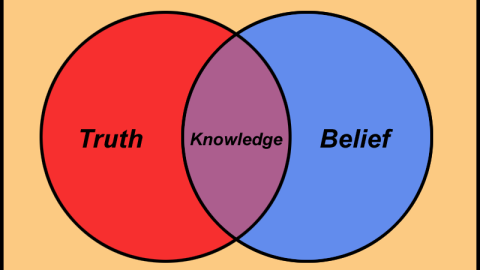Why We Don’t Believe Science

What’s the Latest Development?
Denying the benefits of vaccines and disputing man-made climate change are two recent examples of human belief that flies in the face of scientific fact, or at least a very large and well-established set of data. The most recent research shows how an individual receives fact—either accepting it or rationalizing it away—depends greatly on the context in which it is presented. If fact is presented to a person in a way that confirms other beliefs already held, he or she is more likely to accept. To convince a pro-nuclear energy skeptic of global warming, for example, I might explain that nuclear energy is a suitable solution to climate change.
What’s the Big Idea?
Why is there such bitter dispute over scientific fact? Why are humans incapable of reviewing evidence and reaching an informed and united conclusion? It is not because scientific data is ultimately inconclusive. Rather, it is because of our emotions’ influence over our powers of reasoning. Temporally speaking, emotions have primacy over our abstract capability to reason. We have immediate emotional reactions to ideas; only after time consuming deliberation do we reach a more considered conclusion. The tendency is evolutionary. We once depended on split-second reactions for survival; now privileging our immediate responses may put us at perilous risk.





